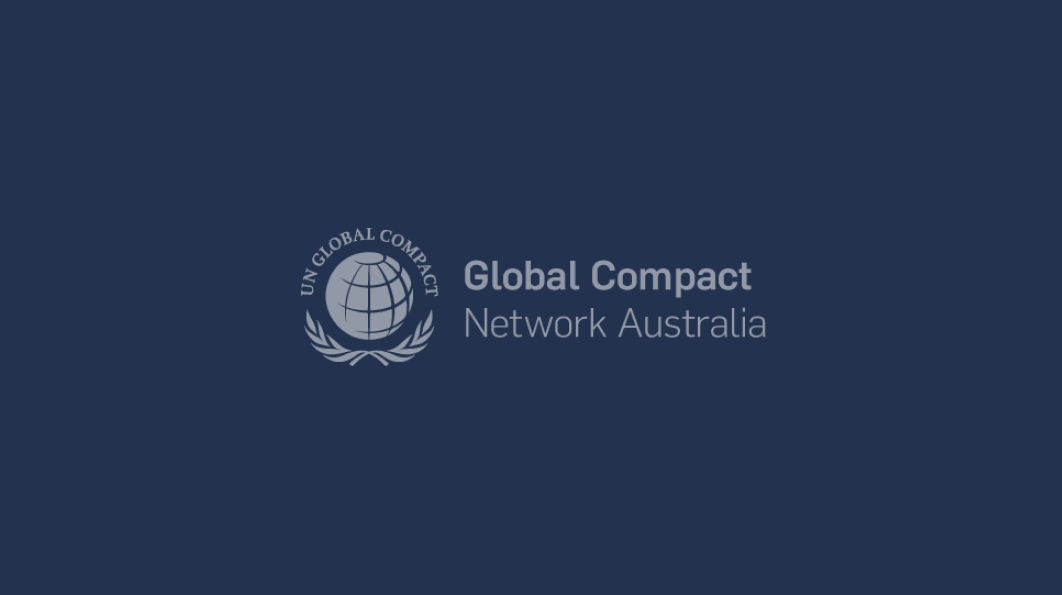
Environment & Climate Change, News
Executive Update: Private Sector Called Upon to Disrupt “Business-As-Usual” at COP 23
UN Global Compact Network Australia | November 24, 2017
(New York) The following is an article by Lise Kingo, CEO & Executive Director, UN Global Compact published on 24 November 2017 on Huffington Post.
“I am asking you to misbehave…” This was UN Secretary-General António Guterres’ plea to business during his opening of the High-Level Meeting of Caring for Climate, held during COP 23 — the annual UN climate conference — in Bonn last week. Generally, when the words “misbehave” and “business” appear together, we expect to hear about business behaving badly. But for the Secretary-General, this was an enthusiastic call to action for companies everywhere to disrupt “business-as-usual” on climate action and call on Governments to ramp up policy ambition.
The next 1,000 days represent a crucial window for the global community to address climate and development. Since the adoption of the Paris Agreement and its entry into force in 2016, the message to business has been loud and clear: we need breakthrough innovation and green technologies to transition to the new, low-carbon economy. But as the Secretary-General highlighted at COP 23, we also need business to work with and encourage Governments to scale up action on climate policy, while at the same time examining their own climate strategies and identifying areas where the ambition can be raised. The embodiment of this is something I have come to refer to as “business unusual.” And to the audience in the room in Bonn, the Secretary-General’s words were a welcome recognition of the leadership role business needs to take in the face of increasing climate stress on our planet.
For me, COP 23 was the culmination of a month-long journey, which among other countries took me to Tanzania and Kenya. After meeting with our Local Networks in the region, I came away with two important conclusions: First, it is evident that East Africa has an incredible untapped potential for sustainable development, and second, businesses across Africa can lead the way forward to a low-carbon and resilient future.
Leading the way to 2030
Often referred to as the cradle of mankind, the African region is also at the centre of a groundswell for sustainable development. The sustainable development challenges faced by countries in the region are significant, as is the opportunity for change and innovation. Burgeoning populations, stronger institutions, improving education, a growing middle class, housing and urban settlements needed, alongside increasing renewable energy and sustainable infrastructure can create fertile ground for new solutions for the long-term sustainable development of the continent.
According to the Business and Sustainable Development Commission, by 2030, opportunities from the Sustainable Development Goals (SDGs) could have an estimated potential value of over US$ 12 trillion in market opportunities, and could create over 85 million new jobs in Africa alone. Pursuing these Global Goals could be the key to unlocking the potential of sustainable development in Africa, however, we need investments in climate change mitigation, education, healthcare, affordable housing, sustainable agriculture and new technologies to ensure progress.
While these challenges are immediate, I remain an optimist, having seen how some of East Africa’s leading businesses are committing to sustainable and inclusive economic development for future generations. With an unprecedented spirit of entrepreneurship, sense of responsibility and commitment to integrity, these business leaders are breaking away from established norms, disrupting their business models and delivering innovation for the Global Goals.
African business at the forefront of SDG innovation
Approximately 85 per cent of our African signatories are aware of the Global Goals and are working to advance them through their strategies and operations, compared to 75 per cent at the global level. In particular, companies in Africa have demonstrated a greater awareness of the social dimension of the Global Goals. On this, the youngest continent in the world — with 20 percent of the population between the ages of 15 and 24 — I met several companies who are investing in youth for their innovations and entrepreneurship. I also heard creative solutions from companies in growth sectors such as healthcare and engineering on how they were addressing issues of gender imbalance in their fields.
While in Tanzania and Kenya, I met with many companies determined to be part of the solution, and that want to ensure business is part of the national conversation on the Global Goals. For example, Patrick Ngowi, who was recognized as an SDG Pioneer in 2016 by the UN Global Compact for his business leadership skills in the renewable energy field, is chair of the Board of the Global Compact Local Network in Tanzania.
I had the great honour of attending the Network’s first Global Goals-themed event, organized together with the United Nations Development Programme Tanzania. The convening took stock of business contributions to the SDGs in Tanzania while also identifying new opportunities for partnership and collaboration to advance the 2030 Agenda. During this event, I learned how the financial sector is taking the lead to promote investments in the SDGs and continuing to innovate in expanding financial services to marginalized groups to promote entrepreneurship among the poor.
Meanwhile, in Kenya, I was pleased to hear from CEOs who described in detail what it means for their companies to commit to the Ten Principles of the UN Global Compact and integrate the Global Goals into their business strategies. Many of these companies opened up about the dual role they play both as employers and as community leaders. For example, in looking at their environmental impact, companies discussed the need to manage their energy consumption and waste impact, but also the importance of fostering “climate smart communities” through education. Further, Kenyan business leaders spoke of a culture of collaboration there, where companies sought to inspire and involve their peers and supply chain partners in the work of the UN Global Compact.
Despite this important progress, it is clear that Africa cannot deliver the Global Goals on its own, not least of which Goal 13 on climate, which brings me to back to where I began this update — with the COP 23 meeting in Bonn, hosted by the Fijian Presidency. There, I saw a growing body of businesses and non-state actors committed to disrupting the way we tackle climate change, and I was reminded of the many conversations I had with leaders in East Africa who were actively challenging business-as-usual.
And just as Africa cannot advance the Global Goals alone, nor can business independently solve the world’s challenges. Climate change, rising inequality and extreme poverty and hunger each requires the urgent attention of all stakeholders. On climate, the public sector must further mobilize and offer stronger commitments than what was agreed to in Bonn. As I type these words, the most vulnerable regions of the world are paying the price for insufficient climate action. The next few years leading up to 2020 will be crucial in mobilizing ambitious climate action and finance — of course in ways that put sustainable development at the heart of its action plans.
So Mr. Secretary-General, on behalf of the more than 9,500 business participants of the UN Global Compact — we accept your challenge. In turn, we invite everyone — public and private — to “misbehave” and disrupt current climate and sustainable development strategies further, faster, together.

